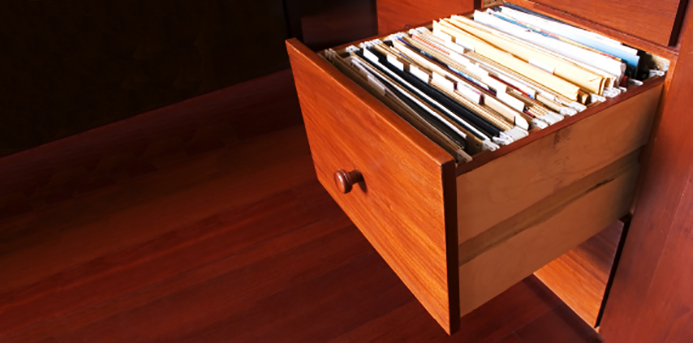In your fervor to spring clean, keep in mind there are some things you just need to keep.
And while we strongly recommend tossing anything that you’re not actually using (see 10 Things You Can Throw Out Right Now), these deserve to stay.
Tax Documents
Glenn Klauke, Winnetka-based certified public accountant, recommends consulting with your own accountant before you start cleaning out your files, particularly if the documents have anything to do with your tax returns.
As a general guideline, think about keeping the following for at least seven years:
- 1040 tax return (to be on the safe side, many people keep these indefinitely)
- W-2s, 1099s and 1098s
- Work papers, payroll stubs, invoices, record logs for tips, travel, mileage
- Donation acknowledgements
- Bank statements, investment records, canceled checks
- Divorce decrees and related records
Remember, most audits occur within three years of when a tax return was filed.
Home improvement records
Klauke not only recommends retaining all the purchase and sales documents for your home, but also any and all receipts for expenditures that add to the value of the property. That way, when you sell your home, the added value can be used to help reduce any capital gains.
You should also keep a copy of architectural plans for your home, including those before and specific to any renovations. Even better, keep the copy stamped by your local municipality to prove that appropriate building permits were pulled.
Medical records
It’s rare today that we keep the same physician for our lifetime. So it’s up to you to keep track of your medical history.
As a general rule, you should keep records of all significant medical procedures, test results and evaluations for every member of your family. This information is valuable when it comes to medical history, applying for life and health insurance, tracking your children’s developmental milestones, and monitoring general health.
And if you’re claiming deductions for medical expenses as part of your tax return, Klauke says you need to keep all bills, canceled checks, statements and receipts for at least seven years.
Appliance instruction manuals
In that pile of papers that comes with every new appliance, big and small, you will usually find a basic instruction manual. Keep it. You never know when your washer will display an unusual error message. That simple booklet could save you hundreds of dollars in unnecessary service calls and repairs (particularly when it comes to following basic maintenance guidelines).
Your child’s treasures
Chances are, your child is a budding hoarder. But remember you may not always see eye-to-eye with her on what to keep. Work together to create a memory box that she can manage, while cleaning up the clutter in the process.
Family photos
In your haste to purge, don’t get rid of old photos and negatives until you’ve had them scanned and stored, either in a virtual “cloud” or the right hardware. (Not sure how to digitally store your old photos? Try these easy tips.)

